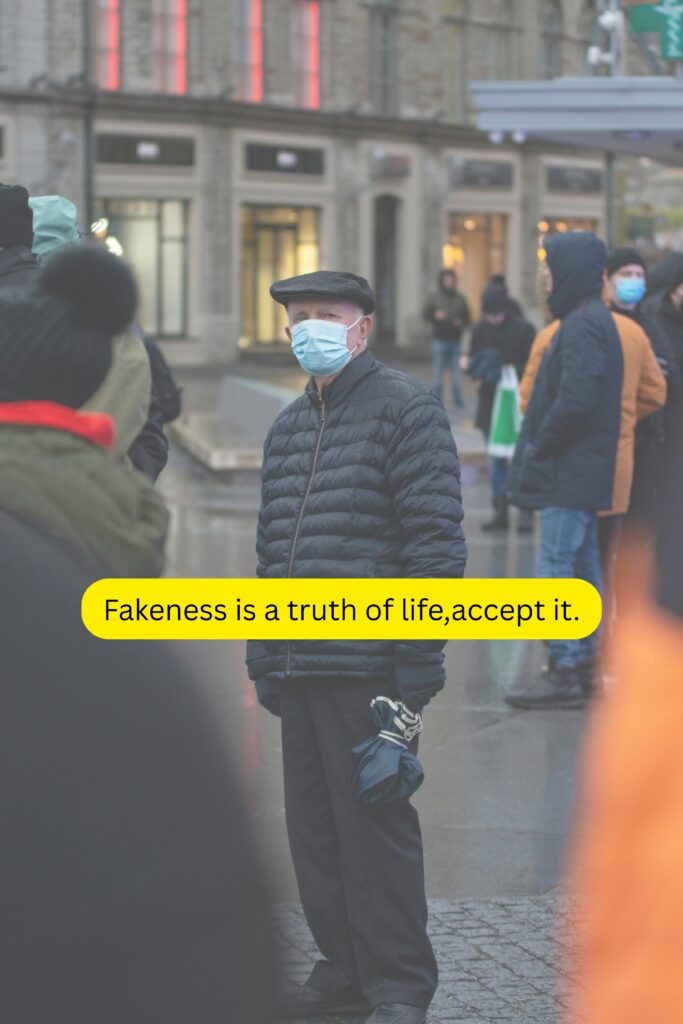
In a world where appearances often overshadow reality, fakeness has become an inevitable part of human interactions. From social media filters to carefully curated personas, people tend to project what they believe others want to see rather than who they truly are. This isn’t limited to online spaces. Even in daily life, many wear masks—hiding vulnerabilities, exaggerating strengths, or pretending to care when they don’t.
The reason for this is simple. Society rewards conformity, admiration, and success. To survive or thrive in such an environment, individuals sometimes compromise authenticity for acceptance. The colleague who flatters the boss, the friend who agrees just to avoid conflict, or the influencer who sells an illusion of perfection—all are reflections of this reality.
Accepting fakeness doesn’t mean endorsing it. It means understanding it as a part of the human condition. It allows us to navigate relationships more wisely, without the constant disappointment of expecting raw honesty from everyone. When you recognize that people often act from fear, insecurity, or ambition, you develop empathy instead of resentment.
At the same time, this awareness calls for self-reflection. Are you also wearing a mask? Do you compromise your truth to fit in? Accepting fakeness externally should encourage you to remain real internally.
Life is complex. Not everyone will show their true colors. But when you accept this truth, you stop wasting energy on frustration and start focusing on the few genuine connections that really matter. That is where peace lies.